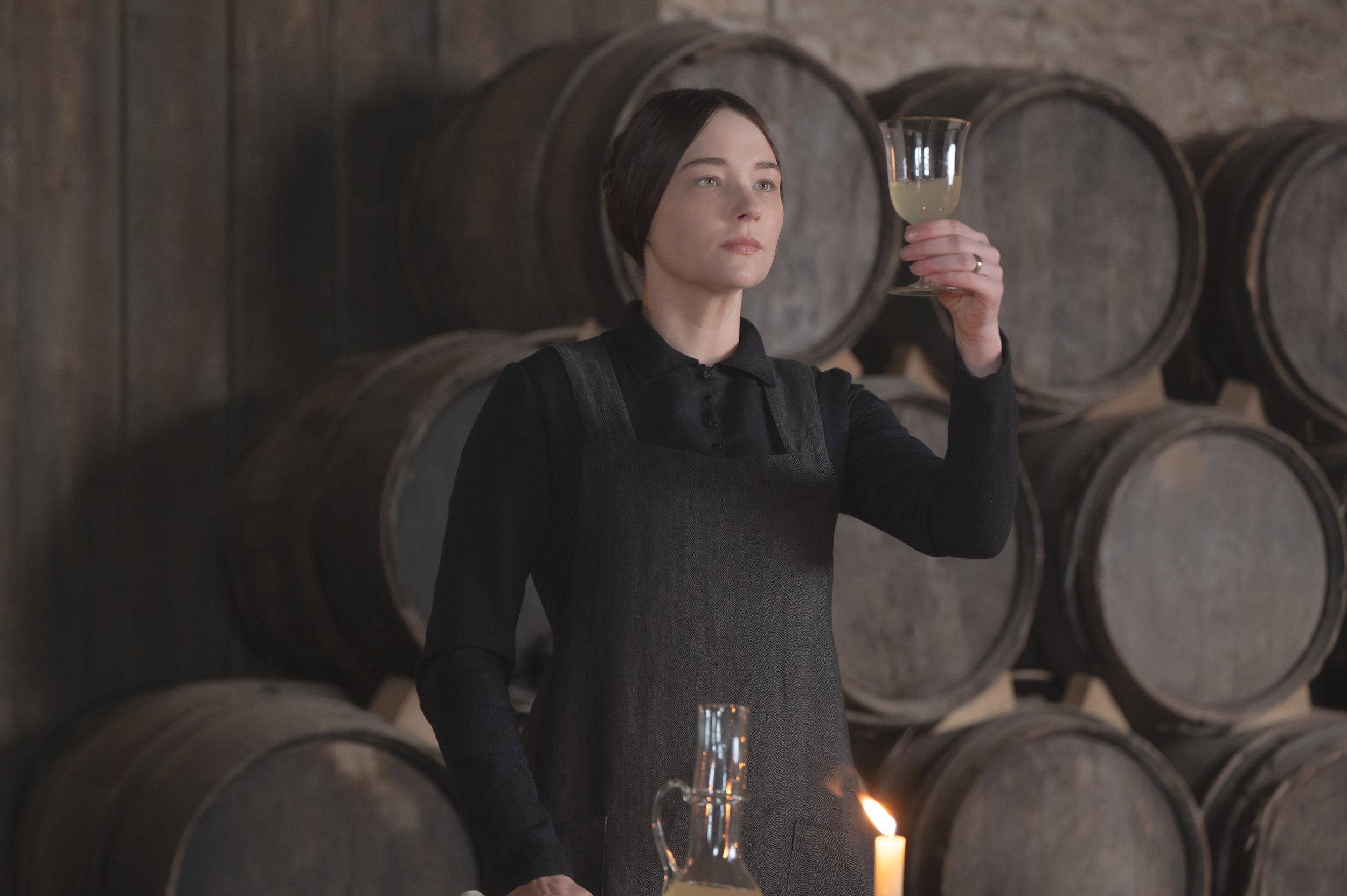Widow Clicquot: Fact-Based Drama About Champagne's Chief Woman (Ahem) Sparkles
By Kim Hughes
Rating: B
It may not sound like a big deal, but it’s actually very satisfying to see game-changing historical women having their stories told on a major platform and having them told well, with emotional intelligence.
Widow Clicquot, based on author and historian Tilar J. Mazzeo's nonfiction bestseller and which premiered last year at TIFF, does that. The drama chronicles the fearless and feisty Barbe-Nicole Ponsardin, an incredibly savvy French noblewoman born at the end of the 18th century who went on to change the way the world drinks — and thinks about — champagne.
Married at age 21 to vintner François Clicquot, Barbe-Nicole quickly learned the secrets of the vineyard, which was fortuitous as François died soon after, leaving our protagonist a young, widowed single mother though not exactly destitute, grieving as she was in a chateau sitting atop a fully stocked cellar in one of the loveliest places on earth. But still.
After François’ death, neighbouring winemaker Claude Moët moved to purchase the vineyard for himself, something Barbe-Nicole’s father-in-law Phillipe Clicquot was keen to see happen.
But, as the film shows, Barbe-Nicole leveraged Phillipe’s grief over François’ untimely passing — mental illness and suicide are writ large here — to let her keep the vineyard and run it herself. This despite Napoleonic law forbidding women from entering business or anyone from exporting French product to its European enemies.
Phillipe gives Barbe-Nicole one vintage to turn a profit, anticipating failure.
Through multiple flashbacks, we see Barbe-Nicole and François’ love blossom then slowly disintegrate as they struggle with his untreated illness. Driving the story are the many obstacles the widowed Barbe-Nicole had to overcome to make a go of the business during dangerous times.
Crop damage, spoilage, sexism, war, and purchase fulfillment issues, to name five, converged upon the winemaker as she relentlessly tinkered with her product, eventually hitting the fermentation jackpot and giving the champagne its unique look, flavour, and intense bubbles.
While its easy — and frankly advisable — to get swept up in cinematic atmospherics, this film is based on a true story. The knowledge of a woman making her way in a world structurally designed to pin her to a rigid, subversive male ideal is exhilarating even if some liberties are taken in the name of dramatic thrust.
A strong international cast elevates Widow Clicquot with Haley Bennett as Barbe-Nicole and present in almost every scene. Her performance, low and slow, broadcasts the determination her character must have needed to thrive in a man’s world.
Tom Sturridge plays the romantic but deeply troubled François Clicquot, Ben Miles is his father Phillipe, and Paul Rhys plays Clicquot’s sales broker who becomes Barbe-Nicole’s cheerleader, lover, and confidant.
Filmed on location in France with the rich period details that make films like this so fun for history nerds, Widow Clicquot is immensely watchable if a smidge lightweight.
But it’s a lovely homage to the smiling old lady you see on the muselet securing the cork in every bottle of Veuve Clicquot sold today.
Widow Clicquot. Directed by Thomas Napper. Starring Haley Bennett, Tom Sturridge, Ben Miles and Paul Rhys. In theatres in Toronto, Montréal, and Vancouver July 19, expanding to additional markets the following week.



